SRF promotes advanced research in 15 different areas to explore and critique the readings possible within the emerging field of Liberal Humanities:

Cultural studies as an academic discipline explores various aspects of culture, including its production, consumption, and social significance, and is concerned with the role of social institutions in the shaping of culture. It also studies the place of race or ethnicity, class, and gender in the production of cultural knowledge. Thinkers like Raymond Williams, Richard Hoggart and Stuart Hall studied the cultural practices and rituals of everyday life associated with ordinary people or with groups who did not belong to the elites. Cultural Studies is not limited to one specific methodology or approach but is characterised by its openness to diverse perspectives and methods to understand and interpret cultural phenomena.
Cinema, a creative artefact and cultural imaginary, is a public and a personal spectacle. Criss-crossing disciplinary boundaries and linking theory to practice informs any comprehensive reading. Reflections on cinema and its culture become vibrant spaces to translate our multi-layered engagements into research explorations. Films as objects of study have always negotiated the borders between entertainment and specialized knowledge, conferring upon Film Studies an ambivalent disciplinary status in academia. Delving into varied approaches, research has moved from individual films to production ideologies to reception and audiences’ constitution, encompassing wider interconnected spheres in the socio-cultural world.
Cinema’s ‘intermedia’ positioning among arts, popular culture and institutionalized knowledge makes it an open domain relevant across times. In an image–driven world, more real than the real, cinema’s dynamism as a mass art remains incomparable. Samyukta Research Foundation aspires to initiate informed dialogues with the multi-layered world of cinema. The Foundation offers a multidisciplinary space for reading cinema along with its ancillary cultural spheres to continue our vibrant associations.

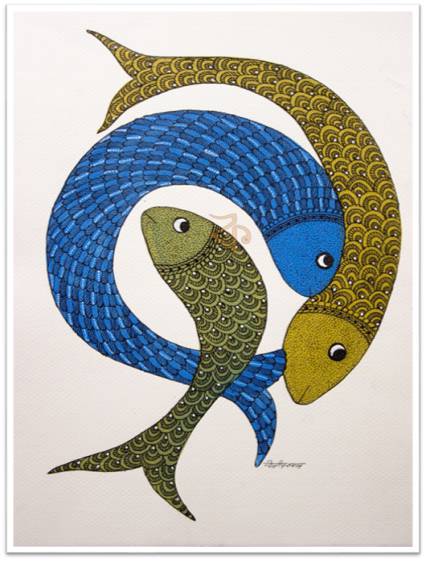
Food studies is an emerging multidisciplinary field of enquiry marked by an intersection between academic and popular work. It rethinks, re-discovers and re-evaluates the significance of food in understanding the ways we live and communicate. It critically examines food and its cultural meaning within the contexts of various academic fields and looks beyond consumption, production, and aesthetic appreciation of food. The field also addresses complex questions pertinent to human existence, the boundary between authentic culinary heritage and invented traditions like who chooses what we eat and why, where does food come from and similar questions.
Food Studies analyses different genres and cultural movements and takes into account the myriad ways food illuminates and engages with religion, society, family, gender, environment, urbanization, immigration, colonialism, race and ethnicity. It is therefore essential to address not only the vast space occupied by food in literary narratives, but also its ability to convey cultural messages. This burgeoning field not only expands our fields of expertise but also helps us to understand the sustainability of our food systems, foodways and food culture.
Performance Studies examines the various facets that go into the making of a performance. But it is not only about analysing the technical, affective, cultural and symbolic significance of staging and viewing performances. Performance Studies also takes a close look at the spatial and temporal fundamentals of what constitutes a performance. This makes it multidisciplinary and fluid.
While the core of what comes under Performance Studies, such as theatre, dance, film and art remain unchanged, the shifting dynamics of the world have necessitated the need to look beyond what is traditionally considered the comfort zone of Performance Studies. Memes, protests, reality shows, prime time news, trolls, installations, graffiti, black-face and fashion trends have come to be studied as performances of disruptive histories. The study of genders and sexualities as performances have already gained traction. These shifts have also periodically mandated an overhaul of our understanding of what a performance is and who or what a performer can be. Similarly, the idea of an audience is also challenged. The human, non-human subjectivities in performances are also an emerging challenge. This is what makes Performance Studies very exciting. It pushes the boundaries of what we think we know and creates simultaneous performances, performers, audiences across spaces and times.

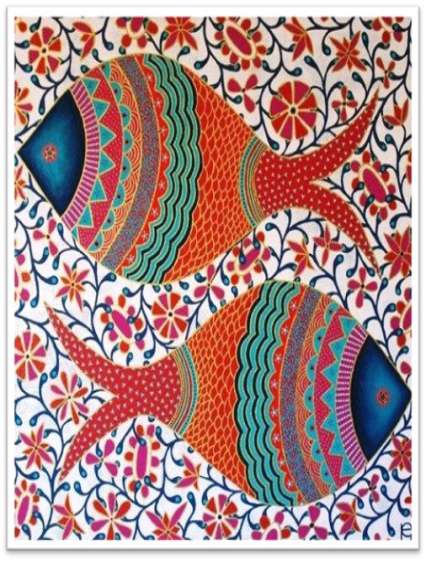
Popular Culture, an umbrella term that evades an apposite definition, brings within its sweep a wide range of mass consumption products for entertainment – music, films, sports, fashion, comics, slang and all forms of media that pander to popular demand and commercial requirements. Unlike the elitist concepts, it represents the ingenious expressions of ordinary people, painting reality more candidly than most forms of “high art”.
There has been a phenomenal boom in the emergence of the quirkiest forms of popular culture. From movies, sitcoms, bands, and the social media, mass culture has metamorphosed to forms like memes and trolls, continuing its bizarre journey into the digital playground of video gaming, hashtag campaigns, computer hacking, web series, Netflix, YouTube and so on. The trajectory of popular culture has made a huge surge from the days of conventional art forms to the digital revolution consuming minds, both young and old alike, with a vengeance. Technology has even evolved into anti-cultures, dismantling power-relations and effecting socio-cultural changes. These non-canonical creations may not find place among the elitist works of art, but they are here to stay, with their astounding potential to constantly mutate and adapt in response to changing times.
Education is changing worldover beyond the boundaries of an academic discipline to a way of thinking. Education Studies foregrounds ‘knowledge production and use’ as a product and process, subjected to a society’s value system than as an object of cognition. Exploring a range of phenomena, Education Studies emerged as a multi-layered discipline and a programme to bridge the gap in the ‘technical-rational’ approach adopted in the training of trainers (teachers). Focusing on education as an epistemology of change and a lifelong learning process, the field of study facilitates a critical and an analytical reading into education in totality and its related precepts, philosophies and phenomena. It encompasses the social, political, cultural and historical context, critiquing its relationship with the society in which knowledge is produced.
The 21st century education ecosystem necessitates a turn from an information society to a knowledge society. SRF explores education as a social activity, a field of enquiry in its own right and participates in public reasoning through the ‘trialectic’ process of experience, theory and critique. The mandate is to create and disseminate knowledge, the manifest sign of an enlightened citizenry becoming Knowledge Societies.
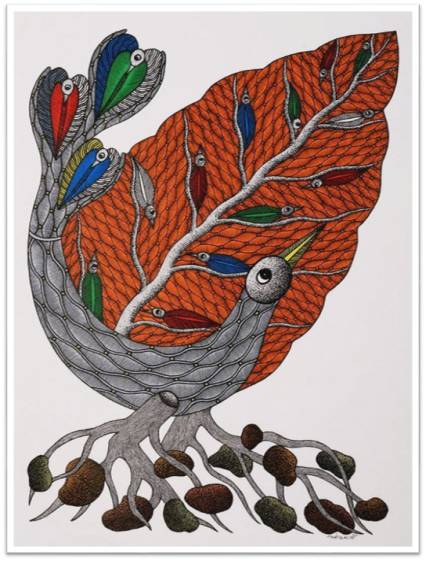

Gender studies is an interdisciplinary field of study that examines gender as a social and cultural construct with respect to identity and representation. It encompasses various disciplines such as sociology, anthropology, psychology, history, literature, and political science, among others. It aims to challenge and question traditional notions of gender, while also seeking to understand and address issues such as gender inequality, gender-based violence, gender identity, and gender discrimination.
Gender Studies seeks to not only advance knowledge but also to promote social justice and equality by challenging gender norms, advocating for gender equality, and addressing discriminatory practices and oppression that individuals may face based on their gender identities.
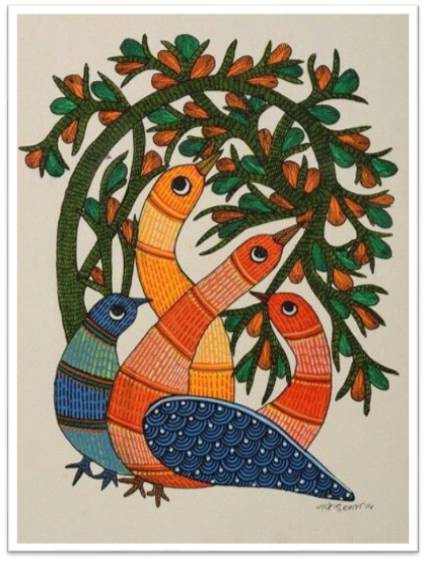

Life Writing is an ensemble of life-telling practices that endeavours to recognize, record, recount and report human life as event, text and paradigm. Life Writing has repeatedly warranted attention to its discursiveness, often demanding a critical concord between the discipline and the concept. Recent scholarly initiatives have demanded a rigorous reconfiguration of the individual as the tell-tale subject of a life narrative. South Asian lives and their renderings have contributed in particular to this reorganization by registering a significant deviance of recognizing life in collectives rather than as individuals.
The conceptual oeuvre of Life Writing has ever since expanded to include the mythical, religious and the performative into its schemata, besides auto/biographies, memoirs, diaries, testimonies and digital lives. South Asian Life Writing engages consciously with the diverse and complex practices of constructing the ‘auto/biographical’ in the cultural polity of South Asia and seeks to explore and understand the ideation of life and its assumed forms of telling.
Media Studies is a discipline that deals with various media and involves the academic investigation of the mass media from diverse standpoints such as sociology, psychology, history, semiotics, and critical discourse analysis. John Culkin valued the application of modern communication techniques within the education system and advocated for the implementation of Media Studies curriculum in schools. Along with Marshall McLuhan, he is recognised as a pioneer in the discipline, and is credited with paving the way for Media Studies curriculum within the education system. In India, Media Studies is a fast growing academic field with several dedicated departments and research institutes.
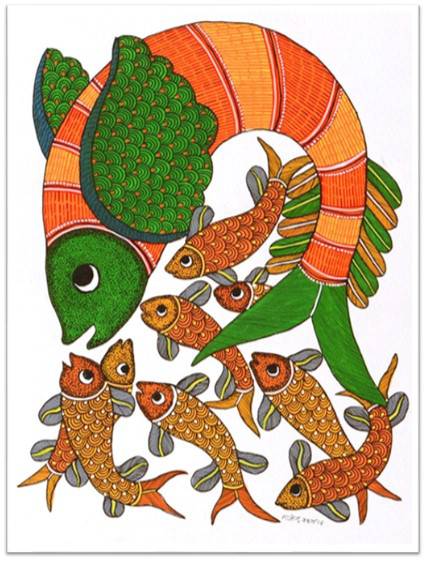

Communication Studies is an academic discipline that deals with processes of human communication and behaviour in different cultures. In social science, it encompasses a range of topics, from individual face-to-face conversation to social and cultural communication systems at a macro level. As a field of study, communication is applied to journalism, business, mass media, public relations, marketing, news and television broadcasting, interpersonal and intercultural communication, education, public administration, etc.
Informed by a multi-sited and multi-temporal research, Peace Studies re-formulates the top-down institutionalized approach on the experience of peace and violence. It opens up the narrow binary distinction between the two by facilitating a more integrated and contextualized reading, examining the structural and systemic forms of violence from below. It will provide a wider view of concerns to effect change with the necessary level of commitment towards a new self-critical and broadly human level of thought and consciousness. As an activity it involves reflecting on these issues in a sustained and substantial way to forge collective solidarity.
As a socially assertive discipline, Peace Studies analyses potential ethnographic sites to understand the dynamics of conflict rooted in specific contexts and its avoidance. Since the concepts of peace, violence and conflict are not static but one that is continually being shaped and reshaped through discourse it subverts normative notions of peace, conflict and reconciliation to open up local contextualization and situatedness. This informs and radicalises its critical approach, opening up to plurality, to the margins and to the epistemological contributions of multidisciplinary research.


It is widely accepted that the term Humanism has a protean nature, shifting from time to time. Historically Humanism has been used to describe various philosophical categories, different schools of thought and even opposing ways of life. However, rational scrutiny and individual moral autonomy are widely accepted as its defining characteristics in the present century. By extension, the term Humanities refers to a hermeneutics of culture, mostly in the academic world.
To project this nature of Humanities as a historical condition with strong epistemological foundations, G. S. Jayasree and Arya Aiyappan of Samyukta Research Foundation (SRF) propose the term ‘Reflexive Humanities’. It is reflexive in the sense that it reflects upon its own nature, implying a critical sensibility, continuously refining and reforming its basic premises.
Our aim is to test new waters in academic research, employing the time-honoured tools of critical theory, historicism, cultural studies and so on in innovative and sometimes daring ways. To mark a beginning, we are launching a series of research and publication initiatives in the following areas:
Blue Humanities or Blue Cultural Studies is an interdisciplinary field of research that probes into the varying relationships the oceans forge with humans and non-humans. Moving from the surface to unravel the hidden depths of the marine world through diverse lenses borrowed from the arts, history, ecology, sciences and other interrelated fields provides an alternative perspective. Destabilizing the established binaries of land vs water and permanent vs temporary, Blue Humanities foregrounds the ocean as the locus. It marks a paradigm shift in our thinking deep-rooted in the notions of fixity, stability, and permanence. Blue Humanities makes way for a magical fluidity, melting all that is certain. It brings to the forum of thoughts the very essence of the ocean as a volatile space. Naturally, this impinges on the cultural variables (nation, class, gender, and so on) that have historically conditioned our thoughts.
Identified as the “cultural turn” to the ocean, Blue Humanities was initiated in the late 18th and early phases of the 19th centuries. It becomes imminent in the contemporary context when the notion of ‘troubled waters’ has become a glaring reality. As an endangered resource, it necessitates the need for a revisionary outlook to think ‘with’ water. Hydro-criticism not merely confined to an ecocritical reading amalgamates varied discourses centred on conquest, colonialism, gender, nation-building, tracing history, maritime engagement, oceanscapes through representations, cartography, and many more. Reading through the lens of Blue Humanities will foster a renewed vision to comprehend and address several ‘grand challenges’ and posit the oceans as emancipatory forces driving change.


Digital Humanities is an interdisciplinary field that combines study of areas as Diverse as literature history, philosophy, linguistics and cultural studies with computer science data analysis and information technology. It aims to bridge the gap between traditional scholarship in the humanities using the possibilities of a whole range of digital technologies, advancing new ways of understanding and engaging with human culture and history. It overcomes the historical schism between science and humanities providing a fine example of how technology can enhance the research, analysis and interpretation of cultural artefacts and texts
One of the key ideas that drive digital humanities is that technology is not neutral. The methodology of digital humanities emphasises the importance of theoretical engagements with computational methods and digital tools in the analysis of cultural artefacts and texts. It maintains that the choices made in the design and implementation of digital tools and platforms could influence research outcomes and perpetuate biases. Harnessing the power of computers Digital humanities allows for deep learning enabling researchers to ask new questions and gain fresh insights, collaboration and community engagement are central to Digital humanities The poling of resources and manpower leads to fresh insights and innovative practices. Digital humanities is an inclusive area of study that enable engagement with those located outside of academic circles, ensuring public participation in socio cultured activities.
Environmental Humanities is an emerging field of study that draws on multiple fields to provide a comprehensive understanding of the complex interrelationship between humans and the environment. Central to environmental humanities is the idea that the environment is not an inert physical backdrop to human activities, but that it is deeply intentioned with human culture and society. By integrating perspectives drawn from philosophy, history, literature, and other disciplines it attempts to throw light on the social cultural and ethical dimensions of the environmental changes and the subsequent that we are facing today. The field recognizes that such problems are deeply embedded in historical processes and legacies. A close reading of the landscape architects and texts helps in shaping a new history of the environment, providing insights into the long-term ecological impacts of human actions.
A critical exercise of narratives of all types to unearth unseen configurations is central to environmental humanities. Such an analysis examines latent values, beliefs and dynamics of power that shape own relationship with the environment. It further examines the ethical implications of human interactions with the environment exploring questions of environmental justice sustainability and responsibility. Another major area of concern is the intersections between social inequality and environmental degradation and the disproportionate burden borne by marginalised communication. This points to the fact that environmental issues are offered entertained with issues of race, class and gender and advocate a more equitable and inclusive approach to policy training and decision-making in such critical areas.


Health Humanities is an interdisciplinary field that reexamines conventional notions of health, illness and human experiences through the lens of arts and humanities. It is an emerging discipline engaged in a humanistic approach to health well beyond the barriers of ableism or ethnographic discrimination by questioning and inter-training the narratives of the physician, patient, the caregiver and historian it lays bare normative understanding of health. Health humanities recognises that health care and well-being are not purely biomedical finominal but are deeply influenced by cultural social historical and ethical factors. Identifying the detrimental effects of poverty, racism, gender inequality and climate changes on health the central to the methodologic of health humanities. By systematically integrating insights from disciplines such as literature, philosophy, History, Anthropology and the arts, It aims to broaden are understanding of health care.
As Pointed out, the field of health humanities emerged In response to the recognition that a purely biomedical approach to health care has limitations in addressing the complex and multi-faceted nature of health and illness. It acknowledges that health care is not just about treating diseases and physical symptoms, but also involves the analysis of subjective experiences, emotions and social contacts of individuals and communities for this purpose examines the role of narratives to come to grips with experiences of illness and the impact of personal stories, memoirs and creative works in shaping are understanding of health and illness. Ethical enquiry is a significant component of health humanities, as it engages with vexing ethical questions and dilemmas in health care. Through its diverse methods and practices, Health humanities contributes and humanizing health care generating new knowledge about the complexities of health and human experiences and enhancing reflexive practices.
Legal Humanities is an interdisciplinary branch of study that employs a holistic approach to the study of laws. Insights from humanities and social science enrich the field, leading to a broader understanding of the cultural and ethical dimensions of law.
By contextualising law and examining it from multiple perspectives, Legal humanities offers a rich framework to analyse the complexities of the legal systems and their impact on people and their everyday lives. It maintains that law is not a static and abstract set of rules, but is a body of thought that evolves and responds to changes in polity and society. A critical enquiry into the historical development of legal systems brings to limelight how normative practices of the past and legal codes that sanctified them, continue to impact the present.
Techniques of representation and narrativization play a significant role in legal humanities. It employs theories and methods from the humanities to challenge existing legal frameworks, uncover biases and explore alternative modes of thinking about law and justice. The preferred tool of Legal humanities is the close reading of texts, doctrines and institutions. Employing a critical lens, Legal humanities aims to expose the limitations and shortcomings of legal systems, leading to discussions on how to better serve the changing needs of society.


Urban Studies is a multidisciplinary area where numerous discourses from geography and architecture to sociology and anthropology converge to observe and analyse the cityscape. The issues it deals with pertain to multitudinal axes like the evolution of cities, geography of urban landscapes, practical aspects of governance, and urban economics to city culture, and urbanism. The axioms of locational, socio-cultural and network theories are mostly employed to analyse these concerns. They employ specific theoretical frameworks to study the above, which determine and transform urban experiences. Urban humanities further broadens this area into an interdisciplinary field that combines the study of urbanism with humanistic perspectives, approaches and methodologies. It explores the complex interconnections between cities, their built environments, and the people who inhabit them, examining the multifaceted nature of urban spaces and the experiences of urban dwellers.
Scholars of Urban humanities investigate the very process of urbanisation, the physical structures and spatial arrangements, and cultural landscapes of cities. They view cities as dynamic and complex systems shaped by historical, social, economic, and political forces. Their interest lies in an intersectional study of how the above influence human experiences, social interactions, and the formation of identities. By studying the built environment and its relationship with the people who inhabit it, urban humanities seeks to reveal the underlying meanings and narratives embedded within urban spaces. It examines the social structures, communities and inequalities that emerge within urban environments. Of particular interest are issues such as urban segregation, social stratification, housing affordability, public spaces, and community development, to understand the social fabric of cities. By critically looking into the social dynamics, urban humanities aims to contribute to the creation of a more inclusive, equitable, and sustainable urban futures.
Translation is a creative act, the study of which has now moved beyond the borders of textual studies, linguistics, comparative literature, history, philosophy, gender studies and culture studies. It forays organically into other branches of knowledge including social sciences, biological sciences, cognitive science, computer science and areas of artificial intelligence. It is therefore absolutely necessary to keep abreast of research in other fields to broaden the horizons of research in Translation Studies and to remain at the cutting edge of knowledge.
It would be our endeavour at Samyukta Research Foundation to draw Translation Studies out of its comfort zones by actively promoting multidisciplinary research which hinges itself on any related branch of knowledge. Samyukta Research Foundation will promote translation and Translation Studies in many ways, which will include the publication of a Translation Studies Journal, treatises on translation theory, and translations of other literatures into English.

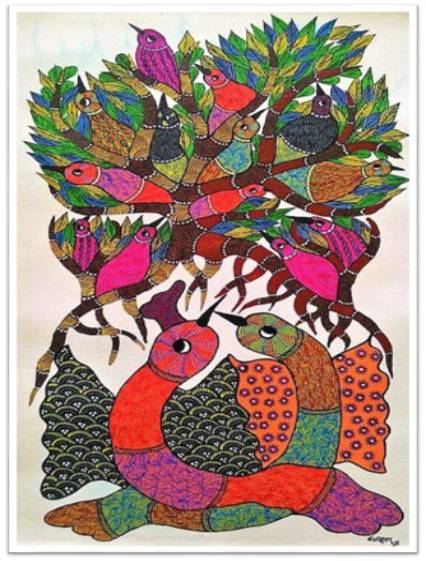
The world as we know it, is constantly breaking up and restructuring itself. It is imperative to reassess the paradigms of what constitutes an identity and the ways these re-readings reflect not just contemporary or anticipated realities, but also the past. And sexuality is a major constitutive component of what identities are constructed out of. There has been a sense of ennui with regard to Sexuality and Gender Studies as they are terms that have been used rather way too generously.
The current time that we occupy demands new ways of talking about selves and sexualities. The legal, ethical, medical, social, ecological, digital and post-human configurations that involve sexualities require intense and informed debates. There is an emergent need for making these discourses participative and public. The rhizomatic networks that govern all aspects of human life necessitate a panoramic view of sexuality related movements, thus fashioning a transnational conversation that influences precarity, policy and polity.
Travel Writing, with its critical landscape marked by shifting contours, ever-expanding generic limits and widening possibilities of potential texts, escapes disciplinary boundaries. From the poetics of scripting travels to the politics of identities that transcends exclusionary structures, travel writing straddles many worlds. Rather than attempting to ‘discipline’ the field which treasures a rich history of ages, we need to explore the ‘mobilities’ between two or more locations that punctuate human lives, the foundational idea in travel writing. It involves a critical engagement with literal and metaphoric journeys through multiple worlds – geographical, imaginary, alternative and virtual.
A cosmopolitan perspective takes us through the subjective, collective, political and cultural viewpoints of those who experience and record the infinite dimensions of travel. In contemporary times, travel writing is evolving into an intellectually exciting multidisciplinary field engaging with the paradigmatic shifts in Humanities. It has attained literal, political and imaginary significations through its engagement with the interactions between cultures, lives and subjectivities. SRF will attempt to redefine this fascinating discourse of linear and non-linear travels that continue to script our individual, collective and social life stories.


Urban Studies is a multidisciplinary area where numerous discourses – from geography and architecture to sociology and anthropology – converge to observe and analyse the entity called the city. Though the study of cities can be traced back to Plato and Aristotle, it evolved as a structured and systematic discipline in the late 19th century. It encompasses concerns spread across multitudinal axes radiating from the evolution of cities, urban landscape, governance, administration and urban economics to city culture, ‘way of life’ and urban futurism. These concerns can be mapped under three predominant approaches, locational, network and sociocultural analysis. They engage specific theoretical frameworks to study the spatial-temporal-cultural factors which determine and transform urban experiences.
In the evolution of Urban Studies, the inception of the Chicago School (1920) initiated fresh perspectives on urban life and its several tangible and intangible nuances, veritably converting the city into a “laboratory.” Urban/Human Ecology, a key theory associated with the Chicago School, views the city as a “social organism” and uses concepts from natural sciences to examine the various facets of the “societal pyramid.”
Call: 0471-4018628
Email: info@samyuktaresearchfoundation.org
Address:
Samyukta Research Foundation,
A Street, Jawahar Nagar, Kowdiar, Thiruvananthapuram
Kerala, 695003
© Copyright 2020 Samyukta Research Foundation. All Rights Reserved. | Designed By Digipact Media